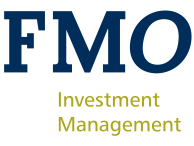Turkey, increasing headwinds
Turkey’s economic and social development performance since 2000 has been impressive, leading to increased employment and incomes, making Turkey an upper-middle-income country. During this time, Turkey urbanized dramatically, maintained strong macroeconomic and fiscal policy frameworks, opened to foreign trade and finance, harmonized many laws and regulations with European Union (EU) standards, and greatly expanded access to public services. It also recovered well from the global crisis of 2008/’09.
However, in the past few years, following the coup attempt in July 2016, the overall macroeconomic picture has become more vulnerable and uncertain. Resulting in rising inflation, unemployment, contracting investment, elevated corporate and financial sector vulnerabilities, and patchy implementation of corrective policy actions and reforms. There are also significant external headwinds due to ongoing geopolitical tensions in the subregion. The impact of the COVID-19 crisis is expected to have a severely negative effect throughout Turkey, further weakening economic and social gains.
Staple foods
For our customer Tiryaki Agro, however, there is a better outlook. This family-owned supply chain manager in agriculture products - founded in 1965 - was not severely impacted by the COVID-19 pandemic. The main reason lies in the fact that the consumer demand for Tiryaki’s products – mainly staple foods like wheat, flour, edible oil, lentils and rice - did not decline. On the contrary, the demand increased: last June the full year results proved that the company has a resilient financial performance. The Turkey’s government did implement strict lockdown measures, but made exceptions for the production and distribution of food – making the transportation of staple foods possible.
Tiryaki shows good numbers. The company source 25 different agri-commodities from over 15 countries on different continents and sells to over 80 countries, roughly equally spread over three pillars: Turkey, MENA and developed markets. Their trading operations mount to 3.7 million tonnes annually. Because of their significant role as a distributor of staple foods reaching the poorest countries as well, the World Food Program recognizes Tiryaki as a longstanding partner and contributor to food security, SDG 2.
To grow as a company, you need the right kind of capital
FMO financing
FMO was the lead arranger of a USD65 million long-term loan facility to Tiryaki, which was signed in 2018. FMO’s initial commitment was USD30 million while the European Bank for Reconstruction and Development (EBRD) and Proparco, the French development bank, committed USD20 million and USD15 million respectively. It is in the FMO tranche in which the Fund currently participates.
A broader perspective
Growing companies commonly have a need for capital. Internationally operating companies such as Tiryaki Agro may have access to relatively short-term capital from commercial investors. This also applies to Tiryaki Agro, which was able to attract commercial capital via ABN AMRO syndication. This transaction which also was signed in 2018, entailed a USD 230 million multicurrency syndicated facility, in which FMO also participated significantly. This particular facility was prepaid mid-2020. However, providing medium-term working capital to growing companies such as Tiryaki Agro remains essential next to short-term facilities that commercial investors are willing and able to provide. Commercial investors have a preference to limit investments to short-term uncommitted working capital as this fit better with their risk return requirements. FMO’s long term financing helps Tiryaki Agro grow in this case specifically with regards to the output of pulses, grains, nuts, oilseeds and feedstuffs, and expand in its export markets.
The company operates its own agri - storage and processing facilities and already employs circa 700 people. These people are at work at the head office in Istanbul, but mainly in the relatively smaller cities of the country, where storage, packaging and distribution centres are located. It is here where the company contributes to SDG 8 the most: by providing decent jobs.
Indicators of impact
Direct jobs ~700
Annual tons of staple food 3.7 mln tonnes
Sourcing countries 15


